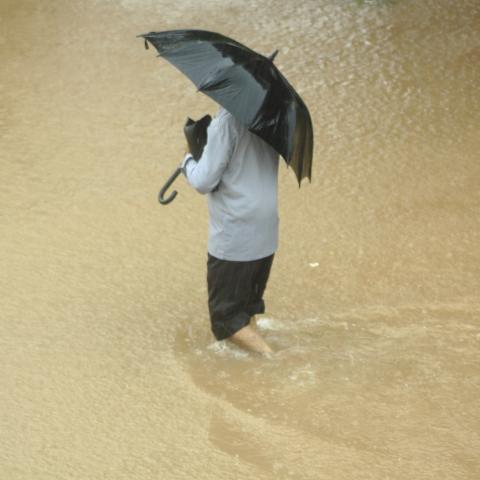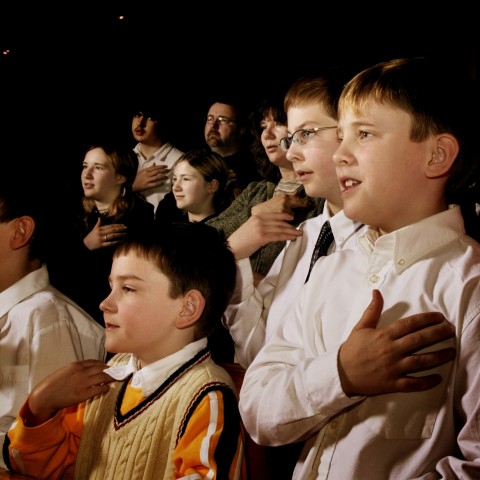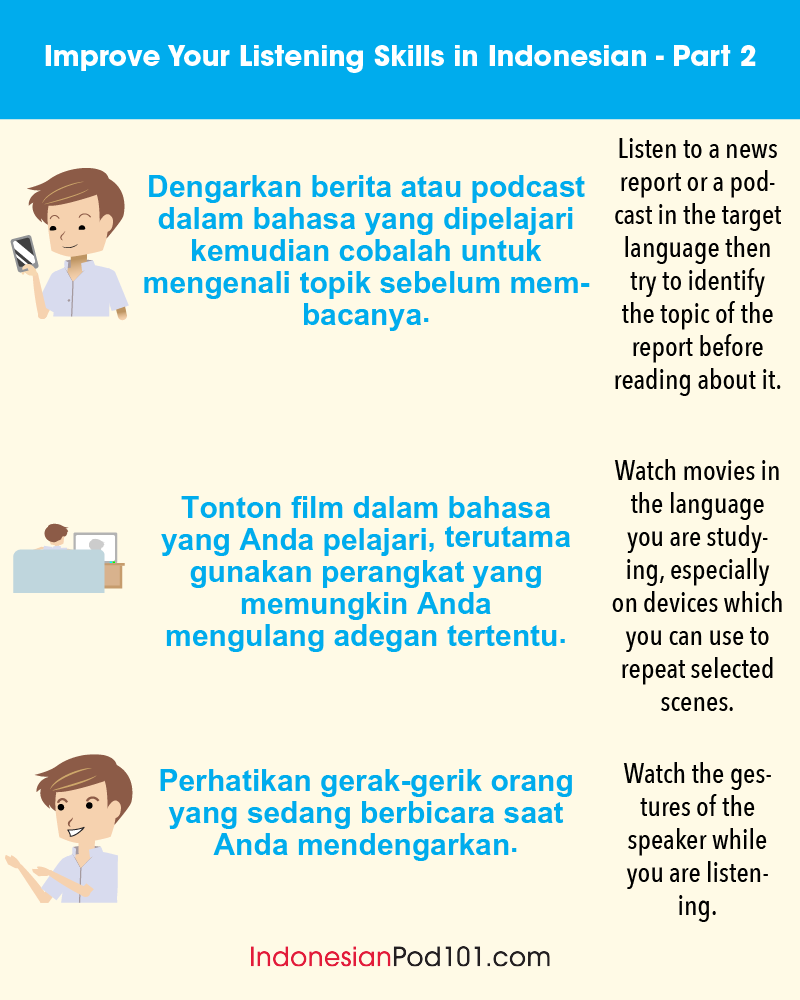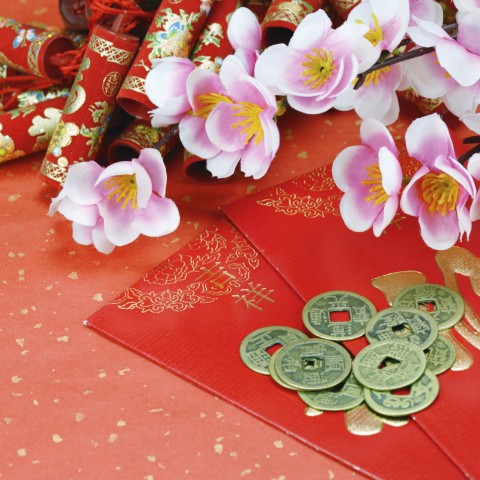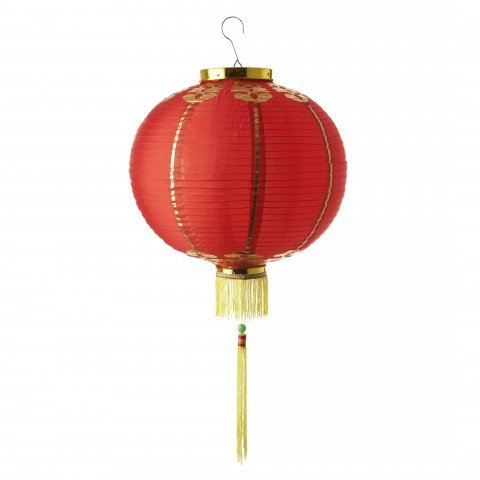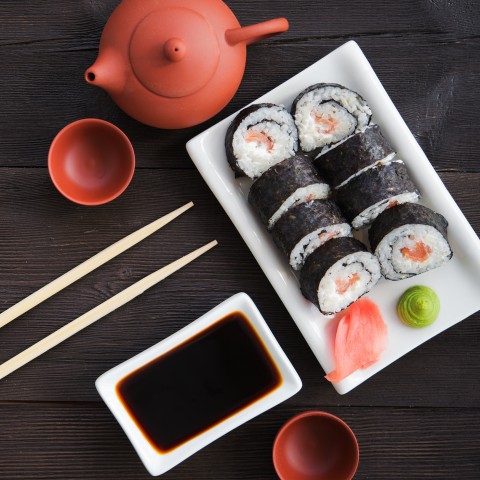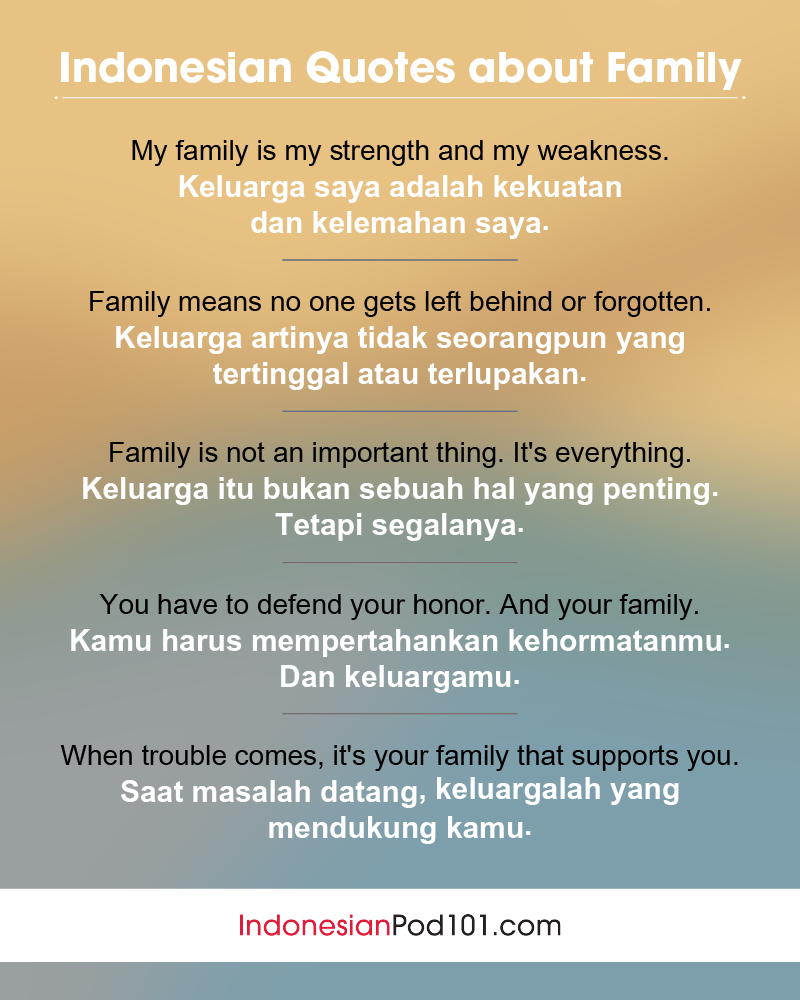There’s a lot to be said for being able to make good small talk in another language. Conversations can start up and keep going indefinitely with the right people.
But what can you talk about? Perhaps you’ve tried talking about the weather and didn’t end up getting terribly far.
Or perhaps you’ve already met someone in Indonesia and gotten along with them, but you don’t know what to talk about whenever you hang out.
When something big happens in their life, you’ve got the perfect opening. For example, wishing them a happy birthday in Indonesian is a good way to open up new conversation topics (like what they want to do during this next year of their life, if they have special plans, etc.).
Well-wishes, or ucapan in Indonesian, are an important part of any culture. Knowing the right thing to say, whether it’s good news or bad, is the cornerstone of any interesting conversation.
In this article, you’ll learn about phrases of congratulations in Indonesian, as well as how to offer Indonesian condolences when they’re needed. Let’s get started.

Table of Contents
- Birthdays
- Holidays
- Christmas
- Babies
- Graduation
- Weddings and Anniversaries
- Bad News in General
- Good News in General
- Conclusion
1. Birthdays
Indonesians definitely celebrate birthdays, meaning that wishing someone a happy birthday in Indonesian is much appreciated. The word for “birthday” is hari kelahiran (literally “day of birth” when translated), but instead of using that construction, there’s a set phrase you should use.
- Selamat ulang tahun!
“Happy Birthday!”
In very formal contexts, like when an important person is celebrating their birthday as a large public event, the word dirgahayu is used. Generally, dirgahayu is used for Indonesian Independence Day—so it has the same connotation as the birth of a country!
If you’re writing a card, you should also include some of these excellent phrases for wishing long life, happiness, and success.
- Semoga permohonanmu terkabul.
“May your wishes be granted.” - Semoga selalu sejahtera.
“Keep staying prosperous.” - Semoga panjang umur.
“May your life be long.”
In English, we have one typical birthday song that everybody knows (perhaps two, if you count He’s a Jolly Good Fellow). In Indonesian, though, people don’t really sing the song. Only in the case of celebrating a foreigner’s birthday would a song be sung, and then it would just probably be the same tune as the English Happy Birthday to You.
2. Holidays
Wishing someone a happy holiday in Indonesian can be a bit uncertain if you’re new to the country.
For example, when you’re living in Indonesia and everything starts closing up early during the holy month of Ramadan, if you’re not a Muslim you may not be clear on how to wish other people a “Happy Ramadan.” To be honest, it’s not really done with the kind of fervor that, say, Americans tend to use when they wish every stranger in sight “Merry Christmas.”
That said, a holiday greeting in Indonesian is normally appreciated. Here are a couple of examples:
- Selamat menunaikan ibadah puasa.
“Wishing you a blessed Ramadan.” - Selamat Idul Fitri. Minal aidin wal faidzin.
“Happy Eid Mubarak. Please forgive any wrongdoing.”
These two phrases can function as a sort of conversation, in that if somebody greets you with one, you can reply with the other.
From dawn to dusk, Indonesian Muslims fast during Ramadan. As the word for “fast” is puasa, you can say Selamat puasa! to others to wish them a happy fasting period.
After the month of Ramadan is over, the fasting period is broken with the celebration of Eid al-Fitr, or as it’s known in Indonesian, Hari Raya Idul Fitri. During this time, there are public holidays known as Lebaran, where everybody takes time off to be with family.
3. Christmas
When it gets past November, the Christmas spirit is alive and well in big shopping centers and near churches. (You’ll get past the incongruity of seeing Christmas trees next to palm trees.) But because most people you meet aren’t likely to celebrate Christmas, it’s a good idea to refrain from sending out season’s greetings to ordinary people on the street.
With people you know better, you can certainly tell them Merry Christmas in Indonesian:
- Selamat Hari Natal!
“Merry Christmas!”
In a casual context, the ubiquitous word selamat can be shortened to simply met.
Lastly, for a holiday greeting in Indonesian that says both Merry Christmas and Happy New Year in Indonesian, you can do exactly what we do in English:
- Selamat Hari Natal dan Tahun Baru!
“Merry Christmas and Happy New Year!”
The New Year isn’t the largest holiday of the year, by far, but you’ll definitely hear fireworks. People celebrate all through the country. If you can, try to get up to the top of a building in a residential area and watch the fireworks go off all around you. A great way to ring in the new year!
4. Babies
The arrival of a new baby is a joyous time for anyone. In Indonesia, the equivalent of a “baby shower” can take many forms. In some places, it’s held in the seventh month of a woman’s pregnancy, and is a time for a woman’s closest friends and relatives to give their blessings.
In other places, there’s no ceremony until after the baby is born, at which time they’re welcomed into the world with an enormous feast and party.
No matter what the ceremony looks like, you can’t go wrong by wishing the mother or the father congratulations with this phrase:
- Selamat atas kelahiran bayi!
“Congratulations on the birth of a new baby!”
Naturally, you can be more specific with your Indonesian congratulations by being more descriptive with your words.
- Selamat atas kelahiran sosok yang begitu menakjubkan.
“Congratulations on finding something so magical.” - Nikmatilah petualangan sebagai orang tua!
“Enjoy your journey into parenthood!” - Aku sangat bahagia dengan kelahiran si kecil dalam keluarga kalian.
“I’m overjoyed at the arrival of the little one in your family.”
A quick note on Indonesian usage: That little word si is actually kind of like a title. Here it’s being used in a very cute way to say “the little one,” but it could just as easily fit before any adjective: si gemuk, meaning “the plump one,” or si manis, meaning “the sweet one,” for example.
5. Graduation
More and more students are graduating from Indonesia’s top schools every year. But that doesn’t mean graduating isn’t a big deal. If you know someone who’s graduating (or if you yourself are), then you should definitely study up with these phrases.
- Selamat wisuda!
“Happy graduation!”
In a card, you can send these more formal wishes for the future:
- Aku bangga denganmu.
“I’m proud of you.” - Saya berharap kamu selalu sukses.
“I hope you achieve success.”
The word berharap here implies both a hope and an expectation—so no pressure!
- Kamu sudah bekerja keras untuk lulus.
“You’ve worked hard for this graduation.”
One interesting thing is that, since a lot of young people are studying English or speak it very well, plenty of Indonesians will just use English to congratulate each other on graduating. It’s almost seen as more formal than Indonesian.
6. Weddings and Anniversaries
If you’re lucky enough to be invited to an Indonesian wedding, you should make your best effort to be present. Unlike in the West, where you can send a gift or card if you’re unable to make it, people in Indonesia generally give out invitations to their close friends with the expectation that they’ll be able to come.
There are two very common wedding congratulations or set phrases in Indonesian.
- Selamat ulang tahun pernikahan!
“Happy Wedding Day!” - Semoga bahagia sampai tua.
“Wish You Happiness Until Old Age”
Doesn’t quite roll off the tongue in English, but it will be very well appreciated, particularly if you know the bride or groom well.
In addition to these set phrases, you can use some of these example sentences to create your own more personalized Indonesian wedding congratulations.
- Selamat, dan harapan yang indah untuk kalian berdua di hari pernikahan ini.
“Congratulations, and warm wishes to both of you on this wedding day.” - Selamat untuk kawanku! Semoga selalu bahagia dan keluargamu sehat.
“Congratulations my friend! I wish you happiness and good health for your family.”
As many weddings are held within religious traditions, it’s very common to send spiritual blessings or doa, which are “prayers,” during a wedding as well.
- Aku berdoa agar Tuhan memberkati kalian berdua dengan pernikahan yang indah.
“I wish to God to bless the two of you with a beautiful wedding day.” - Semoga Allah memberi berkah kepadamu dan atasmu serta mengumpulkan kamu berdua dalam kebaikan.
“May Allah bring blessings upon you and gather the two of you together in kindness.”
Those are just two examples of the highly formal style of language you can expect for doa (and in Islamic weddings, these prayers are often delivered in Arabic outright). Many people actually consult religious scholars to provide them with prayers that fit the situation, and the bride and groom, exactly.
7. Bad News in General
Not every life event is all sunshine and roses. If somebody’s going through a tough time or has received bad news, you should extend some heartfelt words of sympathy.
Many Indonesians use the word “sorry” in English (some spell it sori). To foreign ears, this can sound rather dismissive, but it’s not rude. Even for relatively serious things, you might hear someone say sori ya but mean it with respect and gravity.
However, this is somewhere where you can’t totally rely on simple set phrases. If somebody thinks that you’re not sincere in your words—just reciting something memorized—then it’ll hurt more than if you hadn’t said anything. And as a foreigner learning Indonesian, using just your own language might seem like a bit of a cop-out.
So keep that in mind as you look at these following phrases, and if you ever have to use them, do your best to speak more specifically about the actual situation.
1- Death or Funerals
Funerals are a bit complicated here, as they’re highly personal events that are still celebrated in literally hundreds of different ways throughout Indonesia. Remember, the Indonesian language, as a national language, is only about two or three generations old, and cultural roots go way deeper than that.
First, the basic phrase for expressing sorrow is turut berduka.
- Turut berduka atas ayahmu.
“I’m very sorry about your father.”
When giving condolences in Indonesian, it’s common to refer to someone’s death in a sensitive way, just as in English we might say that someone “passed away.”
- Saya sangat kaget mendengar bahwa dia telah tiada.
“I am very sorry to hear that she has passed away (literally: that she is not here).”
The most common condolence messages for funerals in Indonesia take the form of reminders about the person’s afterlife. Although not all Indonesians are devoutly religious, the vast majority believe strongly in a creator and an afterlife, and these thoughts are very comforting for someone who has lost a loved one.
- Semoga Tuhan memberinya tempat yang terbaik.
“May God give them the finest place.” - Dia akan mendapatkan tempat terbaik di surga.
“He will receive the finest place in heaven.” - Ingatlah kebahagiannya untuk bertemu dengan Sang Pencipta.
“Think of her happiness in meeting the Creator.”
Aside from that, condolences often come with gifts of flowers. You should deliver them personally if possible, along with words like these:
- Tetap kuat dan ingat bahwa kamu memiliki banyak orang yang peduli denganmu.
“Remain strong and remember that you have a lot of people who care about you.” - Kami selalu mendoakanmu.
“We’re always praying for you.”
2- Poor Health
If you were suffering from an illness, wouldn’t it feel great to know that your friends and family were thinking of you? It’s always a great gesture of kindness to send nice thoughts to someone who’s feeling under the weather, whether it’s serious or just an ordinary bug.
First, the all-purpose phrase:
- Semoga cepat sembuh!
“Get well soon!”
But when you’re really feeling awful (think day three or four of tropical fever), the concept of “getting well” might seem awfully far away. In that case, you’ll want to hear encouraging messages of support, both from the perspective of friendship and of spirituality.
- Jangan merasa sendiri. Aku akan selalu bersamamu.
“Don’t feel alone. I’m always with you.” - Jangan pernah menyerah!
“Never give up!” - Doaku selalu untukmu.
“My prayers are always with you.”
10. Good News in General
And in order to end on a happy note, let’s look at just a few more quick phrases you can use for any kind of catch-all good stuff. Someone’s cat had kittens? Promotion’s coming up? These are perfect responses.
- Keren!
“Awesome!” - Bagus sekali!
“Fantastic!”
What about when somebody’s about to take on a challenge, or they’re not sure whether the outcome will be good or bad? In that case, you can quite literally “wish them success” with this phrase:
- Semoga sukses!
“Best of luck!”
11. Conclusion
Now that you’re armed with all of these great phrases, you should be able to connect with other people on a totally different level than before.
Seriously, there’s a big difference between letting some foreigner know about your upcoming graduation and getting into an interesting conversation with them about it. If you can make yourself into a foreigner who’s capable of having that kind of conversation, your life in Indonesia will be all the richer for it.
I hope you enjoyed learning about Indonesian life event messages, and that you took away something valuable from this article. Before you go, let us know how you feel about holding conversations in Indonesian using these phrases! Are there any life event messages you still want to know about? We look forward to hearing from you. 🙂

























